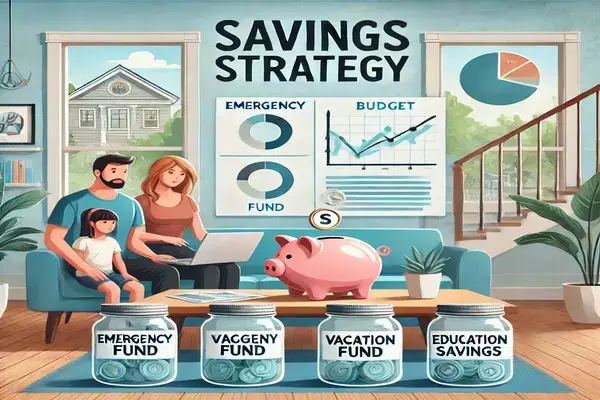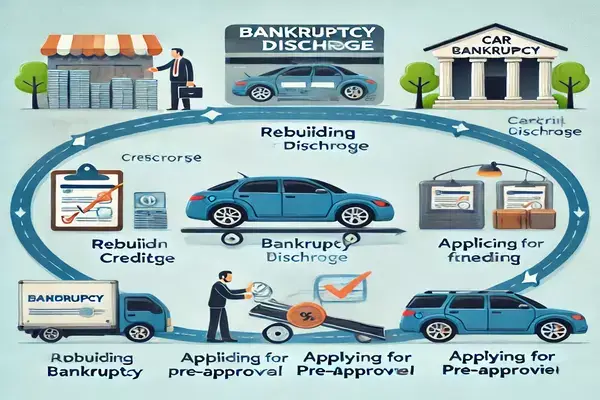
What Are Reasons Why People Avoid Financial Planning?
Why do people fail to plan financially? Hundreds of people don’t dare to take this step even if it is significant. Financial avoidance comes from a misunderstanding, lack of education or emotional hurdles resulting in a missed opportunity for long-term success. This piece unpacks those reasons and provides solid ways to overcome them.
Key Takeaways
- Understanding barriers to financial planning helps address the root causes of avoidance.
- Three practical strategies can help ease fears or misconceptions. Financial planning entails postponing immediate rewards in exchange for rewards further down the line, that is painful.
Misconceptions About Financial Planning
Most people think financial planning is reserved for the wealthy. A side effect of this myth is the mindset that their finances are too small for someone to do it for them professionally. However:
- Everyone can benefit from financial planning, no matter their income.
- Simple planning tools are widely available — from budgeting apps to free financial literacy resources.
- Statistical Insight: 62 percent of Americans are too embarrassed to talk about their money with a professional, and 56 percent aren’t financially literate, according to a CNBC survey.
Lack of Financial Literacy
The devastating impact of financial ignorance is one major hurdle. Terms like “compound interest,” “asset allocation” or “diversification” may be troublesome.
- Offering financial education is rare in schools, and we must figure it out ourselves.
- Free online resources and workshops can bridge the knowledge gap.
Recommendation: Start with beginner-friendly platforms like Khan Academy or local community workshops to build confidence. I encourage you to read more about this blog here: What Are the Golden Rules of Financial Planning?
Emotional Barriers and Money Anxiety
Money anxiety is a common yet under-discussed reason why people avoid financial planning. Fear of failure or confronting financial mistakes often keeps people from taking the first step.
- Let your feelings toward money — whether of scarcity or abundance — take hold of your decisions.
- Working with a therapist or a financial coach can offer a layer of emotional support.
Tip: If a plan feels overwhelming, break it into smaller parts.
Procrastination: The Silent Killer of Financial Goals
Many delay financial planning, thinking they can “start tomorrow.” This behavior often leads to:
- Missed opportunities for compound interest on savings.
- A lack of emergency preparedness.
Table: The Cost of Procrastination
| Age When Starting to Save | Monthly Contribution | Savings at 65 (6% Annual Return) |
|---|---|---|
| 25 | $200 | $402,000 |
| 35 | $200 | $201,000 |
Starting early makes a dramatic difference. The longer you wait, the more you miss out.
Perceived High Costs
Few people end up with a plan in place, as many believe it costs an arm and a leg to hire a financial advisor.
- These days there are inexpensive or no-cost planning methods available — everything from robo-advisors to budgeting tools.
- Costs turn: A certified financial planner could cost $200–$300 an hour, whereas apps like Mint come free of charge.
Expert Quote: “Investing in financial planning is not an expense, it’s an investment in your future stability.” – John Doe, CFP.
Fear of Losing Control
Some people believe hiring a financial planner is giving up control of their money.
In reality:
- A planner offers guidance, but decisions remain in your hands.
- Use a collaborative approach, where you actively participate in setting goals.
Actionable Tip: Use hybrid models where apps assist with planning, while you consult an advisor only for complex decisions.
Overwhelming Complexity
The financial world can have you feeling lost in a maze — taxes retirement accounts and insurance policies.
- Instead of trying to tackle multiple aims at once (like making an emergency fund and paying off a debt), pare it down to one.
- There are online tools that allow you to view all your accounts together for a quick overview.
Helpful Tool: Tools like Personal Capital or YNAB simplify tracking and budgeting.
Lack of Immediate Rewards
Financial planning brings no immediate return on investment, which might turn some people off from getting started.
- Set small, specific goals, like saving $1,000 in three months, and keep them.
- From time to time, reward yourself for small milestones to stay hopeful.
Conclusion
People avoid financial planning because of fear, ignorance, and lack of awareness. However, the risks of neglecting to do it can be high, affecting future safety and sense of security. No longer be in the debt and bill hamster wheel knowing your financial fate is in your own hands!
FAQs
1. Is financial planning only for people with high incomes?
No, it benefits everyone, regardless of income level. Even small steps, like budgeting, can make a big difference.
2. How can I start financial planning with no experience?
Begin with free resources, such as online courses or budgeting apps, and gradually seek professional guidance.
3. Can you trust financial planners?
Review credentials — such as Certified Financial Planner (CFP) designations — and read reviews to identify a reputable advisor.
4. Can I handle financial planning on my own?
Yes, with the right tools and education. However, professionals can provide additional expertise.
5. Sometimes I might feel ashamed of my finances, what should I do?
Financial planners are trained to navigate any scenario with no judgment. The first step is always the most crucial.
Learn More About What Are Reasons Why People Avoid Financial Planning from makebetterfinance






